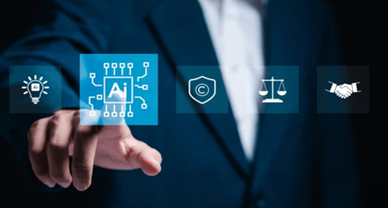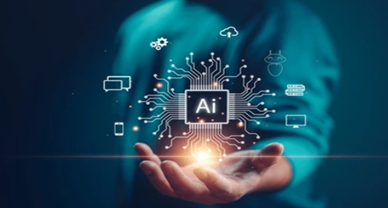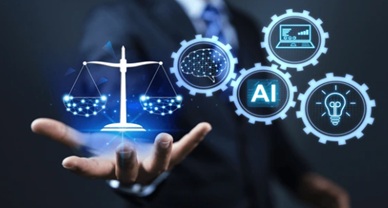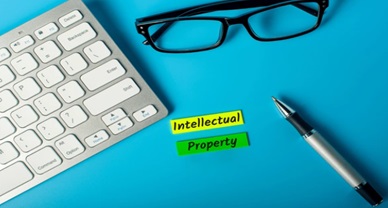AI and Intellectual Property: Ethics and Morality in the Age of Artificial Intelligence
Machines that are designed to understand, acquire knowledge, and solve problems in a manner similar to that of humans are said to exhibit artificial intelligence. Because AI can develop, innovate, and automate processes that have historically required human input, it is relevant in the larger context of intellectual property. A subset of law known as intellectual property law protects investments and promotes innovation by giving creators, inventors, and companies legal ownership rights over their works. The main components of IP law are trade secrets, patents, trademarks, and copyrights.
AI has created new legal issues as its capabilities continue to advance, especially when it comes to identifying who owns what rights and ownership of works or innovations. Patent law has historically acknowledged that people are the ones who create new technology. The subject of whether AI should be treated as a creator in patent applications is brought up by the fact that AI systems are now capable of producing new inventions on their own.
An AI system called DABUS, created by Dr. Stephen Thaler, was designated as the inventor on applications for patents for two innovations pertaining to food package designs as well as light-beam-based technology in 2019. This led to a historic court dispute in both the US and the UK. Because the Patent Law requires an individual inventor, these applications were denied. The case, however, spurred discussions about whether AI systems need to be acknowledged as inventors.
The question of ownership also comes up. When any content or information is produced or created by any form of Artificial Intelligence, then the question arises—who is the rightful inventor or owner of this content? The copyright may belong to the person who developed the algorithm or the proprietor of the AI system, although there isn’t a clear agreement on this point. While some say that the work should become public domain because AI lacks legal personhood, others argue that the rights should belong to the person or entity that controls the AI.
Additionally, by automating the production of musical instruments, stories, and even deepfake movies, AI-driven content-generation tools have the capacity to upend established industries like the entertainment and music sectors. As the number of AI-generated works rises, governments will face more pressure to solve these ownership issues.
The Patents Act of 1970, the Copyright Act of 1957, the Trademark Act of 1999, and the Designs Act of 2000 are among the acts that regulate intellectual ownership law in India. Although human designers and inventors have historically been the focus of India’s intellectual property laws, the increasing use of AI in imaginative and innovative endeavors calls into question established ideas about ownership of intellectual property and enforcement.
With an emphasis on the important topics of trademarks, copyright, patents, and trade secrets, this article will analyze how AI is affecting India’s intellectual property laws. Like in most other jurisdictions, patent law in India mandates that an inventor be a natural person. As per the existing legal regime, AI cannot be attributed as a creator or inventor in patent applications. According to Section 6 of the Patents Act, 1970, an individual must make a patent application, and humans alone can be mentioned as inventors. This is clearly reflected from the rejection of patent applications mentioning AI systems such as DABUS, an AI system created by Dr. Stephen Thaler, as the inventor.
Yet, the question lingers: should AI systems become inventors in the future? Various nations are working on addressing the problem, and in India, it is feasible that the Patent Act may be amended to enable a wider definition to encompass AI systems as co-inventors. Reforms in this vein would need to balance closely the interests of inventors, industry, and the public interest, for the sake of patenting basic knowledge or algorithms that are generated by AI.
As Artificial Intelligence (AI) seeps into all industries, such as innovation, education, and creativity, it has introduced new opportunities and challenges to intellectual property (IP) law. The existing system of IP law in India, which has historically been constructed to protect human inventors and creators, is finding it difficult to fit the growing role of AI. This disparity in the legal framework has generated considerable debate about the future of IP law and its capacity to balance protecting individuals’ and companies’ rights with promoting innovation in the age of AI.
Perhaps the most urgent challenge is the failure of the existing intellectual property laws in India to provide for the use of AI in the innovation and creation process. Indian IP legislations like the Patents Act, 1970, the Copyright Act, 1957, and the Trade Marks Act, 1999 have been formulated on the presumption that the author or inventor is a natural person—that is, an individual human being. The issue of ownership of rights in an AI-created work or invention has not been addressed. For example, in the case of patent law, Indian law insists on a human inventor. AI is a machine and cannot be attributed as the inventor in patent applications. This raises uncertainty regarding how inventions made by AI should be handled and whether the AI system itself or the developer or user of the AI should be granted the patent.
One potential way forward would be the development of a hybrid inventorship regime that blends human and AI contribution. In this regime, the AI would be recognized as a co-inventor or co-author, while the human programmer or user of the AI would be identified as the sole owner of the rights. This strategy would synchronize with international debates over AI and IP, especially within such countries as the European Union and the United States, where debate over AI inventorship is unfolding.

The growing involvement of AI in inventive and creative processes also introduces critical ethical and moral issues. The existing IP law framework has no special provisions to demarcate the ethical dimension of awarding intellectual property rights for AI-created inventions or creative products. These issues concern fairness, originality, and moral rights attribution. One of the ethical issues is that works created by AI should not overly favor one party to the detriment of others. For example, where a company owns an AI machine that produces a new product, there may be issues of monopolies or exploitation of the IP without adequate regard for the public interest.
This concern is even further complicated in the law of copyright, where the moral rights (the right of an author to protect the integrity of their work) are the central tenet. India’s future strategy may involve the creation of ethical standards for AI-generated works so that AI systems are aligned with norms of fairness, inclusivity, and transparency. These standards may cover issues like bias, accountability, and the social implications of AI. A moral rights framework may also have to be modified to accommodate AI-generated content so that human creators can claim certain rights while balancing the contribution of AI to the creative process.
Author: Trisha Manoj, in case of any queries please contact/write back to us via email to chhavi@khuranaandkhurana.com or at Khurana & Khurana, Advocates and IP Attorney.


